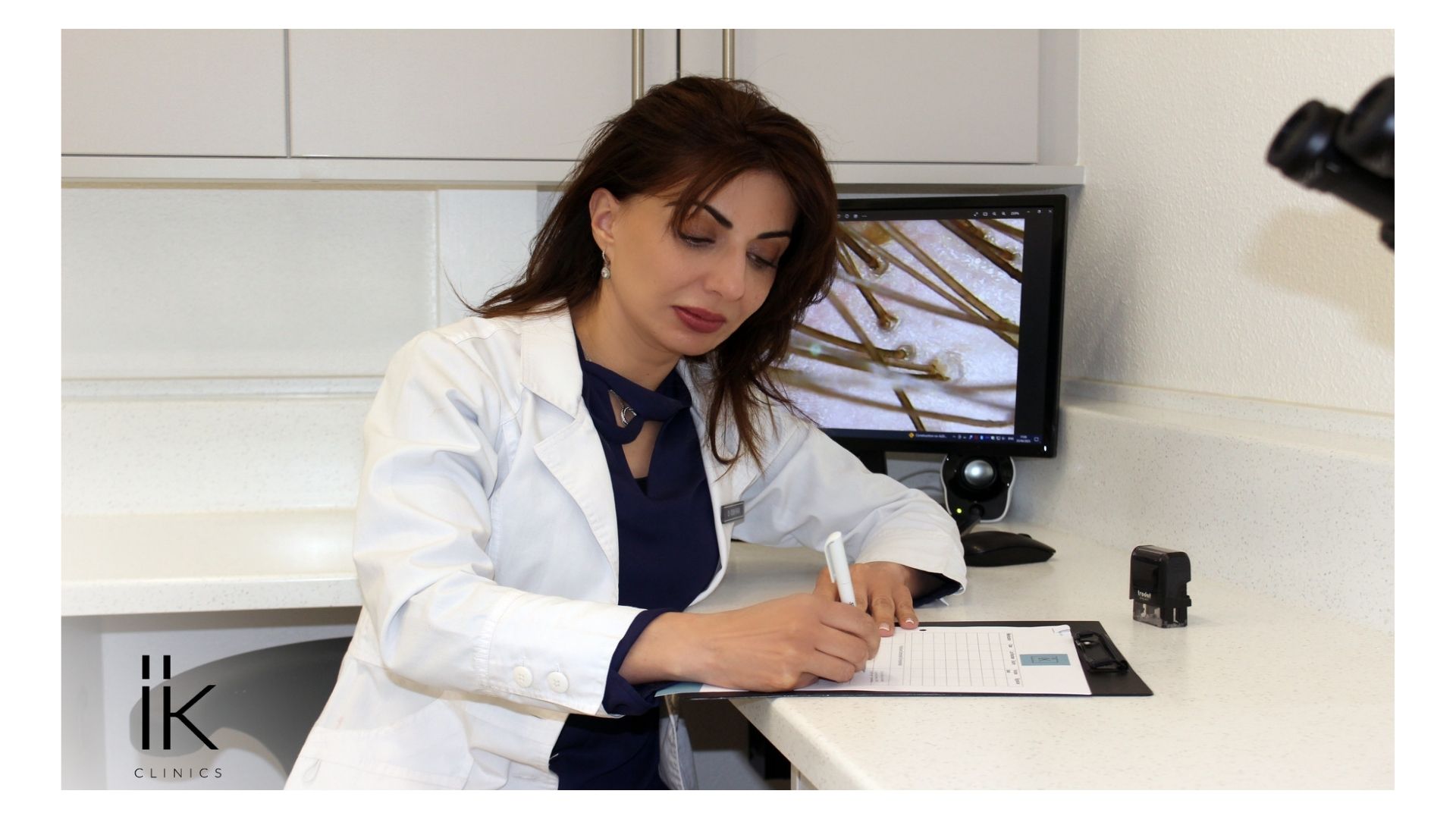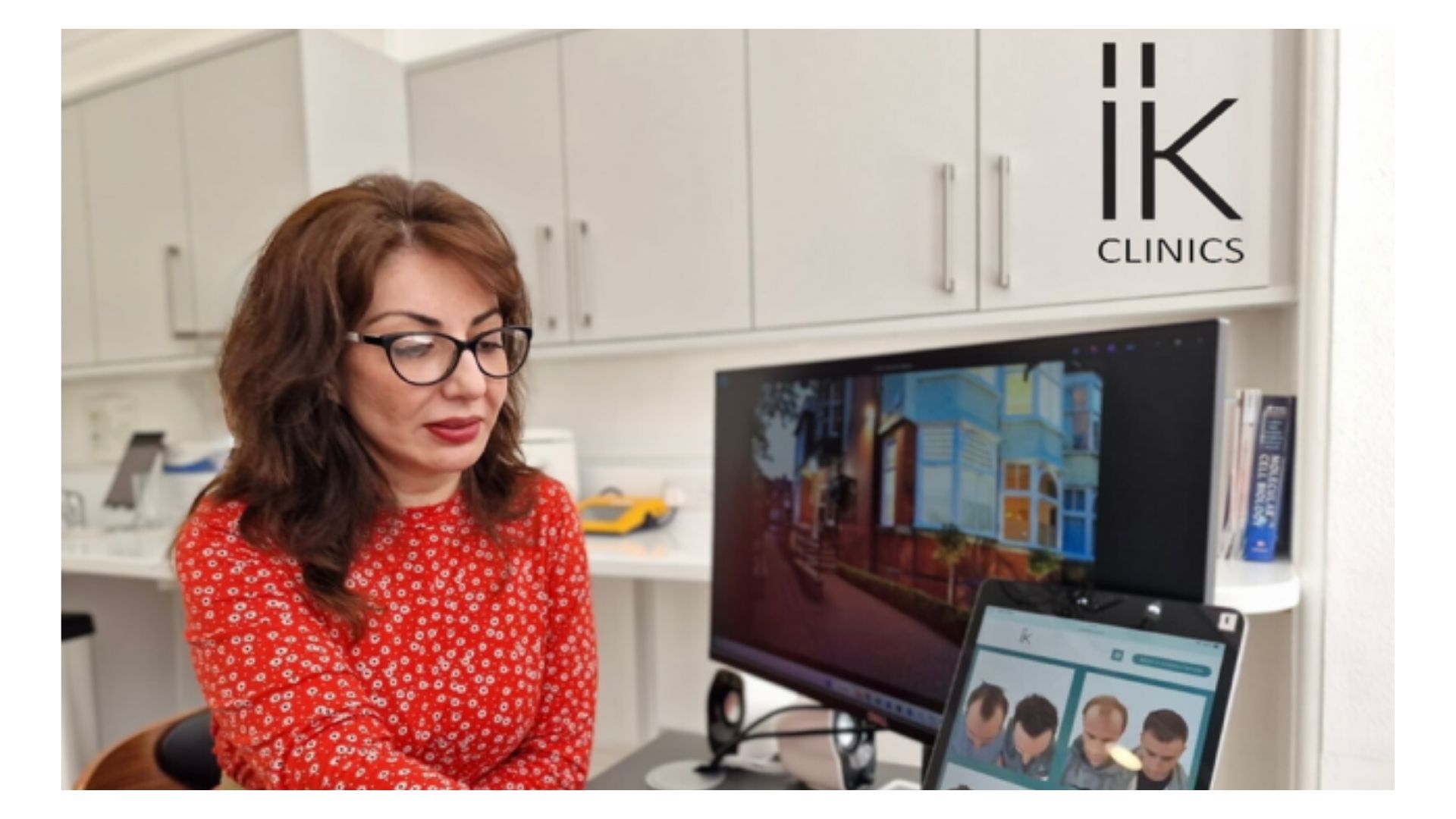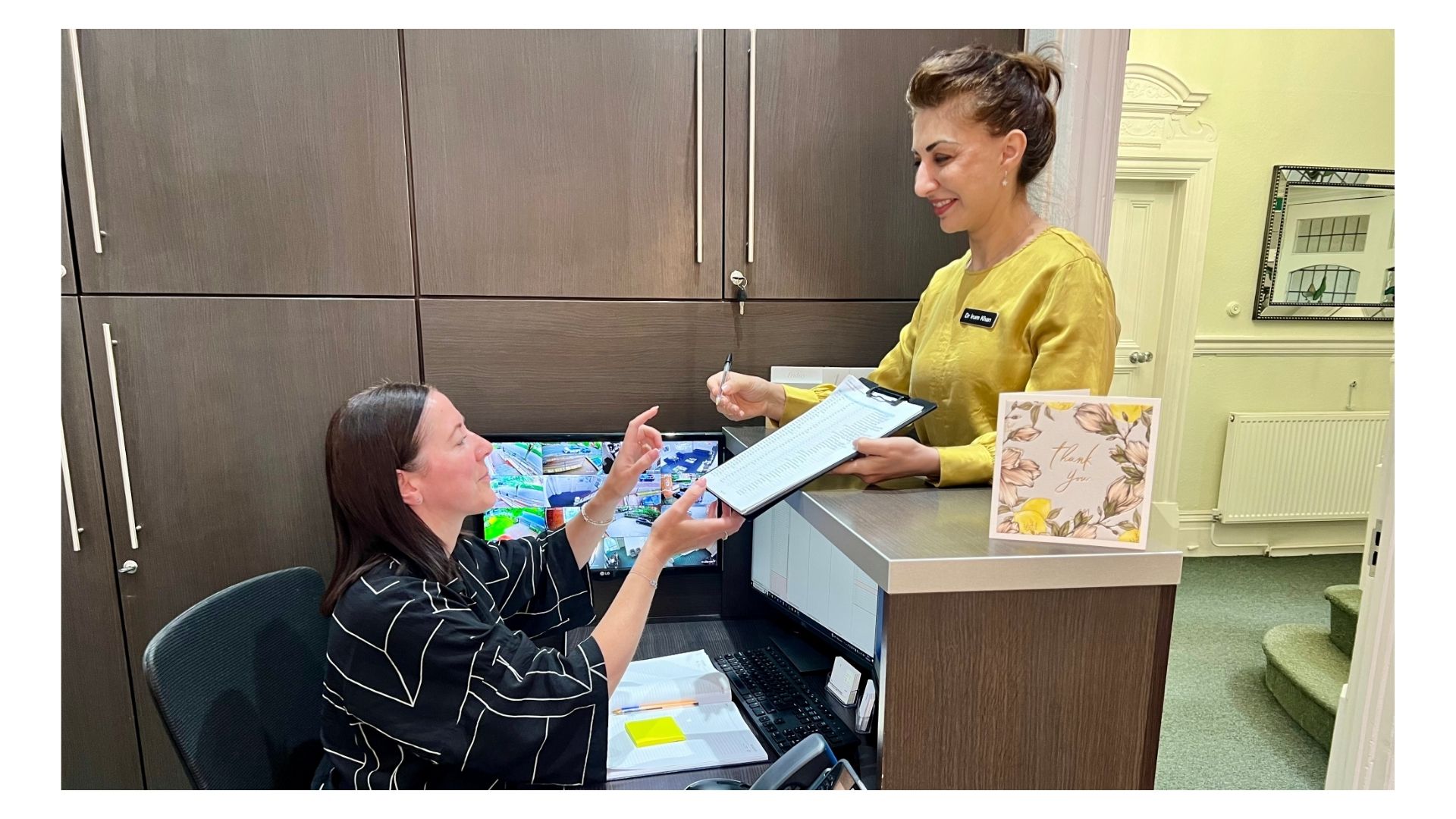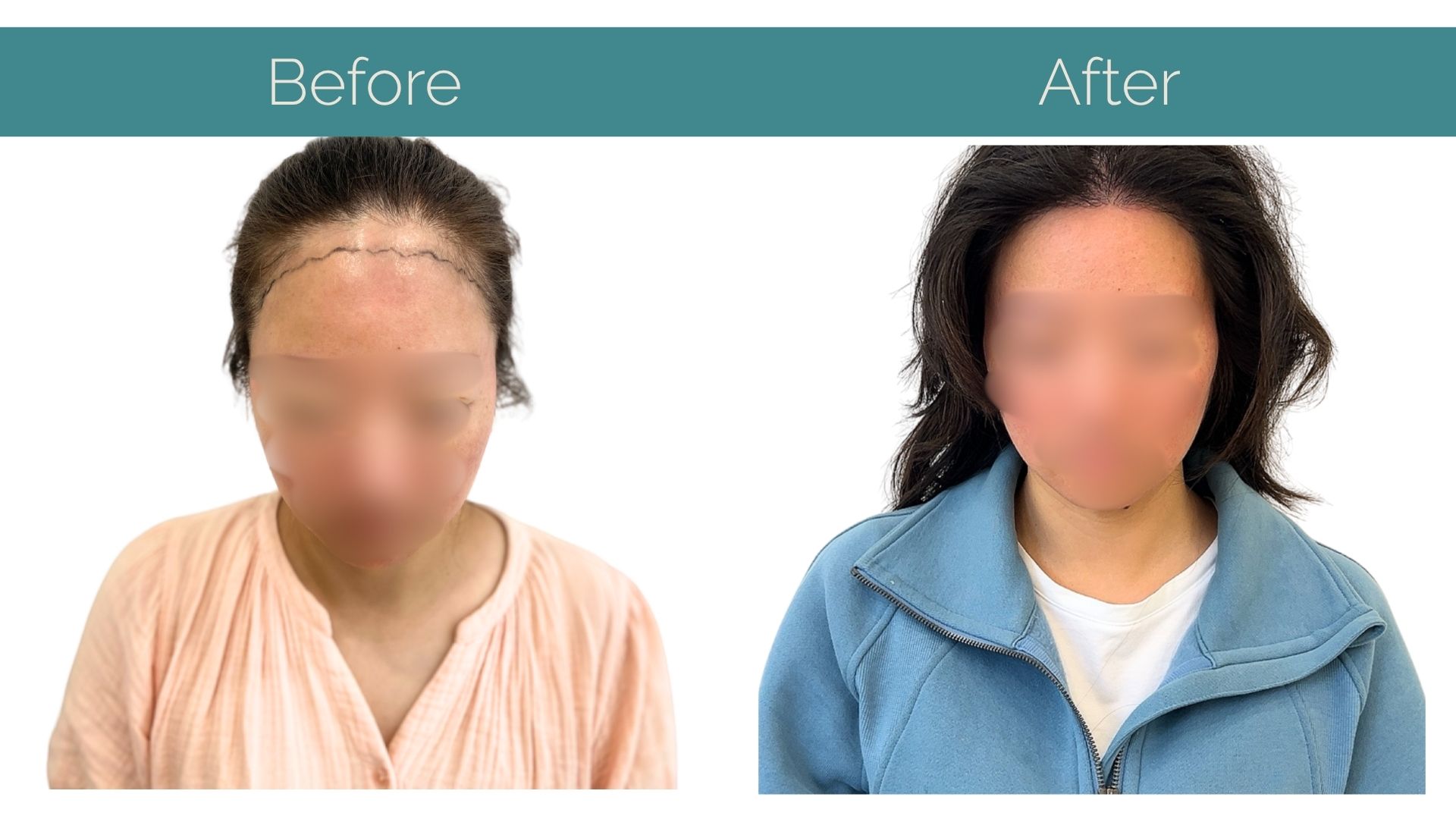But here’s the thing – while those questions are perfectly valid, they barely scratch the surface of what truly matters when it comes to getting the best possible results.
At our clinic, we meet people every week who are desperate for answers, but they often don’t know what they should be asking. And honestly? There are a handful of questions we secretly wish every client would come out and ask before deciding to go ahead with surgery.
So, we’ve decided to lift the curtain a little.
Here are the questions we hope more people start asking – because when you do, you’re far more likely to get the hair, and the experience, you’re truly hoping for.
1. “Am I actually a good candidate for a hair transplant?”
Let’s start with a big one.
Not everyone is suitable for a hair transplant. Yet, this question rarely comes up in consultations – possibly because people assume if a clinic is willing to take their booking, they must be eligible. But it’s not always that simple.
What should be taken into account is a lot more than just your current level of hair loss. What needs to be looked at is your age, the pattern and rate of hair loss, your medical history, your lifestyle, and – crucially – the quality and quantity of your donor hair (usually from the back and sides of your head).
Some people might be better suited to alternative treatments, such as stem cell therapy, or might need to wait a bit longer before going ahead.
If you’re unsure whether now is the right time, just ask us. We’d much rather have an honest chat than see someone waste time and money on something they’re not yet ready for.
2. “What’s the long-term plan for my hair?”
Hair loss doesn’t stop just because you’ve had a transplant. That’s one of the biggest misconceptions we come across.
A hair transplant is a brilliant option for redistributing healthy hair follicles, but it won’t stop future hair loss in untreated areas. So, one question we wish more people asked is: “What’s the long-term strategy?”
The right skilled professional can help you come up with a plan to manage future thinning, whether that includes medications like finasteride or minoxidil, future transplants, or lifestyle changes.
When clients think long-term, surgeons are able to create results that stay looking natural – not patchy or imbalanced over time.

3. “Can you show me realistic results for someone like me?”
We love a transformation photo as much as the next person – but those jaw-dropping before-and-afters you see online don’t always tell the whole story.
We wish more clients would say: “Show me someone like me – same age, same hair type, same pattern of loss.” That’s the kind of comparison that really matters. It sets expectations right from the start and helps you visualise what you might look like post-surgery, not what someone else achieved with different circumstances.
So yes, a fully qualified specialist will always show their best results – but they are also more than happy to show real, relatable outcomes. Just ask!
4. “What happens if I’m not happy with the results?”
This is a big one – and we understand why it feels awkward to ask. But honestly, we wish more clients asked it, because the answer reveals a lot about how a clinic treats its patients.
Any ethical clinic should be upfront about what happens if things don’t go to plan. Are revisions offered? Is there a complaints process? Do we follow up post-surgery and support you if things take longer to heal or grow?
Reputable clinics, like IK Clinics, pride themselves on transparency. Hair transplant success can depend on a lot of individual factors, and they should be there for you every step of the way – even if that means managing challenges after the procedure.
5. “Who’s actually doing the surgery – and what’s their experience?”
It’s easy to assume that just because a clinic looks modern and has flashy marketing, the surgeon must be a seasoned expert. But that’s not always the case.
We love when people ask, “Who will be performing the transplant?” and “How many procedures have they done?” It shows that the client is prioritising safety and skill – something we care deeply about too.
Every reputable clinic should be completely transparent about the team’s credentials. So don’t be shy. Ask for names. Ask for experience. Ask if you can speak to former patients or read reviews. Your hair is too important to leave to chance.

6. “What will the healing process really be like?”
Spoiler alert: recovery isn’t always a walk in the park.
Yes, it’s a minor procedure and no, you don’t need to be off work for weeks. But the truth is, there is a recovery period. There’ll be scabbing, shedding, redness – and yes, there might be moments where you wonder, “What have I done?!”
Trusted professionals should want to prepare you, not scare you. Knowing what to expect helps you stay calm, follow aftercare advice, and get the best possible results. The more you understand what happens after the procedure, the more confident and satisfied you’ll feel throughout the journey.
7. “Can I see your clinic and facilities before booking?”
We always encourage prospective clients to visit us in person. Not just for the consultation, but to see the space, meet the team, and get a feel for the environment.
We believe a reputable clinic should have nothing to hide. It should feel clean, calm, professional, and welcoming. You should feel reassured the moment you walk through the door – not rushed or pressured.
So yes, please ask for a tour. Ask about equipment, safety protocols, and infection control. Any trusted, and safe hair transplant providers should be proud of their clinics and love showing people how they operate.
8. “How can I maximise the success of my transplant?”
This is one of our favourite questions because it opens the door to a whole world of helpful advice.
Hair transplants don’t work in isolation. Your general health, nutrition, lifestyle, and aftercare all play a role in how well your new hair grows. A professional can guide you on everything from diet and scalp hygiene to how to avoid bad habits (like scratching or wearing hats too soon).
We also love when clients ask about things like PRP (Platelet-Rich Plasma) therapy, supplements, or stress management techniques to support hair growth. The more involved and curious you are, the better your final outcome is likely to be.

9. “What don’t you recommend for me – and why?”
Now here’s a question that shows serious maturity: “What wouldn’t you recommend I do?”
It takes courage to be open to an honest “no” – but it can save you from poor decisions. For example, we might advise against a low hairline if you’re in your twenties, or suggest avoiding a transplant altogether if we feel your donor area isn’t strong enough.
A qualified hair transplant practitioner should always have your long-term interests at heart, and respect when clients give them the space to say, “This isn’t the best route for you right now.”
Trust us – sometimes the advice you don’t want to hear is the advice you’ll be most thankful for later.
Final Thoughts: A Better Conversation Leads to Better Hair
A hair transplant is a big decision – and the best outcomes come from clients who are curious, open, and ready to have a proper conversation.
We at IK Clinics genuinely love what we do. Seeing someone regain their confidence through new hair is incredibly rewarding – but we know that good results start with great questions.
So, if you’re considering a transplant, don’t just focus on price or availability. Ask about long-term plans. Dig into credentials. Talk about your doubts. Be honest about your goals. And most importantly – feel empowered to ask anything.
Because when we talk openly, we build trust. And with trust, we can achieve something amazing – together.
About IK Clinics
At IK Clinics, we’re not afraid to say that we’re proud to lead the way. Our expert team, advanced technology, and commitment to patient care ensure you get the best experience from start to finish.
What’s more, we offer a range of services in hair restoration, like FUE, Stem-cell and Plasma Therapy, along with various anti-aging treatments. Get in touch to find out more or book a consultation.


